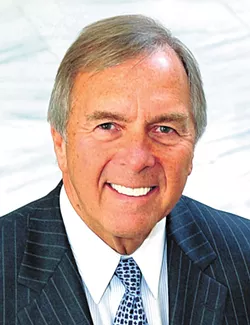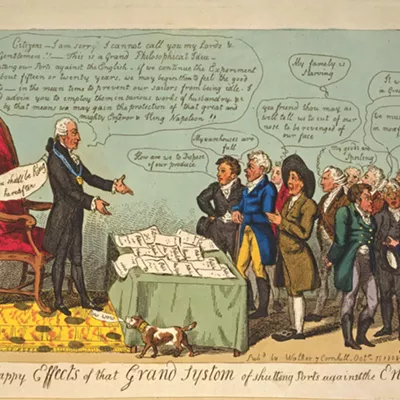As the Democratic candidates for president continue to argue for greater public policy restrictions (critical of tax relief, supportive of health care for all, among others), frontrunner Joe Biden seems to simply bide his time, waiting for the end of the Democratic debate season — even though Biden may not ultimately be the nominee. The debates among Democratic candidates have produced little passion among voters.
In a recent conversation I had, one retired Spokane anesthesiologist recently commented, "If my choice is assuring the continuation of the U.S., or choosing a president who speaks well, I choose the former. President Trump's bad language choices don't affect me, but his policy decisions do."
A former All-American football player and successful Canadian football coach recently asserted that the presidential choice for all Americans in 2020 is a choice between character or public policy.
The anesthesiologist's wife pushed back, saying, "We deserve both — a president who speaks well with a good heart and one with good public policy."
She's right, of course, but that may not be our choice in 2020. We may be choosing between one candidate who can't seem to accept a policy victory by just stopping talking versus one who is so far left that America would be torn apart by policies that the public wouldn't accept.
When we look back on history of presidents who had both, Ronald Reagan comes to mind and so does Woodrow Wilson. A progressive, Wilson opposed World War I, then embraced America's entry into it and spoke eloquently as he strived for victory, in spite of the war's brutal and primitive nature. Reagan spoke elegantly and had conservative, sensible policies generally. Both men were dignified and thoughtful.
Dignity seems to be lacking today in our president and many public officials — populism and economic issues have taken over. Most Democratic challengers want to talk about pocketbook issues rather than issues of the heart. Many voters expect presidential dignity, to friends, world adversaries and allies alike.
International populism seems to have resulted in the election of British Prime Minister Boris Johnson as well as President Trump and a handful of other politicians. The flip in the House of Representatives from Republican to Democratic control may be explained by a Trump backlash. Nevertheless, populism seems to prevail worldwide, especially among those without college degrees who seem to want plainspokenness and results from politicians as opposed to high rhetoric and big promises.
But Johnson, a Brexit supporter, may have faltered recently, having lost a host of smaller districts as his party holds a slim majority in Parliament.
A Shadle Park resident is sick of how political correctness has permeated the American culture. One is branded a racist if one is critical of the job performance of any Americans of a minority race. Accusing someone of sexual harassment is tantamount to conviction, and the presumption of innocence has gone by the wayside. Some female presidential candidates are running on a platform of asserting their presidential qualifications just because they're female.
Trump will possibly be elected as a backlash against political correctness and his propensity to be uncaring about his reputation with the national press. Perhaps that's part of the Trump charm in today's political culture — not caring what he says or to whom he says it. That's refreshing to some voters and distasteful to others.
Democratic presidential candidates are so busy trying to smash the frontrunner and be "progressive" that they may be overlooking what appeals to the ordinary American voter — a dignified president who speaks truth from the heart, is compassionate toward others and is super-intelligent with sound public and economic policies that will allow Americans to fulfill their dreams with a minimum of government interference.
They also want to believe that neither the president nor those who serve him are self-serving — that they have America's best interests at heart. ♦
George Nethercutt represented the 5th District of Washington in Congress from 1995-2005.






















